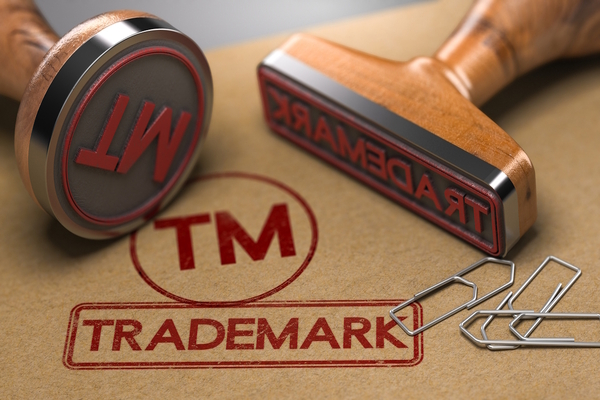Flexibility and the leadership crisis

Seb O’Connell at Org Group explains why situational leadership matters now more than ever
The UK’s first business activity decline in over a year, combined with growing economic and geopolitical pressures, has placed immense stress on leadership. In uncertain times, adaptive leadership—adjusting styles to fit circumstances—is no longer optional. It’s essential.
With decades of experience in business transformation, I’ve seen why rigid leadership models fail in volatile markets. While many strategies focus on what needs to be done, few address the real challenge: How do we get the work done?
How organisations execute—whether through technology, outsourcing, offshoring, or hiring—defines success. Yet, many still rely on static leadership models, leaving them ill-prepared for change. As CEO of Org Group, I believe situational leadership will define the next generation of successful businesses. Executing the right strategy requires the right leadership—at the right time.
Why leadership must change with the times
Many organisations hold on to one-size-fits-all leadership models, assuming the same approach works across all challenges. But the right leader in a crisis isn’t always the right leader for recovery.
For example, companies often promote top performers—high-billing salespeople, standout project managers—into leadership roles during growth periods, assuming their individual success will translate into effective leadership. But when unforeseen crises strike, these leaders may struggle to guide teams through uncertainty.
COVID-19 exposed the flaws in this approach. Many leaders excelled at stabilising operations during the crisis but struggled to shift gears for post-pandemic recovery. Situational leadership recognises that different challenges require different leadership styles—and the best leaders can pivot when needed.
Organisations must proactively navigate transformation, ensuring they place the right leaders at the right moments—following the principles of adaptive leadership.
Global leadership isn’t one-size-fits-all
Many multinational corporations mistakenly assume they can apply the same leadership strategies everywhere—ignoring critical cultural and economic differences. This is a costly mistake. What works in Tokyo may not work in Toronto or Dublin. Yet, corporate headquarters often enforce rigid models that overlook local realities—limiting success. Successful global leaders embrace situational leadership, adapting strategies across markets, cultures, and economic conditions.
At Org Group, we have seen this firsthand when integrating multiple brands, each with distinct cultures, legacies and ways of working. Instead of forcing uniformity, we have built a cohesive group by recognising that each brand’s strengths add value in different ways. This flexibility in leadership allowed us to create something stronger—not just a merged organisation, but a strategically aligned one.
Spotting the right leaders: beyond performance metrics
Many businesses default to promoting high performers, assuming past success predicts future leadership potential. However, technical expertise doesn’t always translate into strong leadership.
So how do you recognise true leadership potential? Seek these six traits:
- Self-awareness: Understands strengths, weaknesses, leadership style.
- Relationship-building: Connects with and influences others effectively.
- Motivation: Drives collective success beyond personal achievements.
- Accountability: Owns decisions and results, even in high-pressure situations
- Adaptability: Thrives in a rapidly evolving business landscape.
- Coachability: Actively seeks feedback and continuous improvement.
Great leaders don’t just make decisions—they guide teams through change and complexity. Companies that promote based only on past performance often put the wrong people in leadership when adaptability matters most.
The role of leadership in the AI era
AI and automation have transformed global business conversations, with companies racing to redefine themselves as "technology-driven." But let’s shift the focus: will AI replace leadership? The answer is no. AI can optimise operations, but it can’t replicate human intuition, strategic decision-making, or emotional intelligence—the core traits of strong leadership.
Organisations that over-prioritise AI risk neglecting the human factor—the ability to inspire, collaborate, and lead where machines cannot. AI is not a replacement for leadership, but a strategic tool that enhances it. The future belongs to those who balance human leadership with technological innovation—not those who try to replace one with the other.
A leadership playbook for the future
Success depends on adaptability and resilience - the best leaders don’t rely on one playbook—they evolve. Leading through uncertainty isn’t about control—it’s about knowing when to shift direction. Whether expanding globally, integrating brands, or navigating economic shifts, effective leaders adjust their approach rather than forcing outdated strategies.
As markets fluctuate, talent shortages continue, and tech disruption accelerates, situational leadership will separate those who survive from those who thrive.
The question isn’t "What is the future of work?" It’s "Who will lead us through it?" The greatest leaders are not those who try to be all things at all times, but those who embrace change, adapt to the moment and empower their teams to thrive.
Seb O’Connell is CEO at Org Group
Main image courtesy of iStockPhoto.com and phototechno

Business Reporter Team
Related Articles
Most Viewed
Winston House, 3rd Floor, Units 306-309, 2-4 Dollis Park, London, N3 1HF
23-29 Hendon Lane, London, N3 1RT
020 8349 4363
© 2025, Lyonsdown Limited. Business Reporter® is a registered trademark of Lyonsdown Ltd. VAT registration number: 830519543





